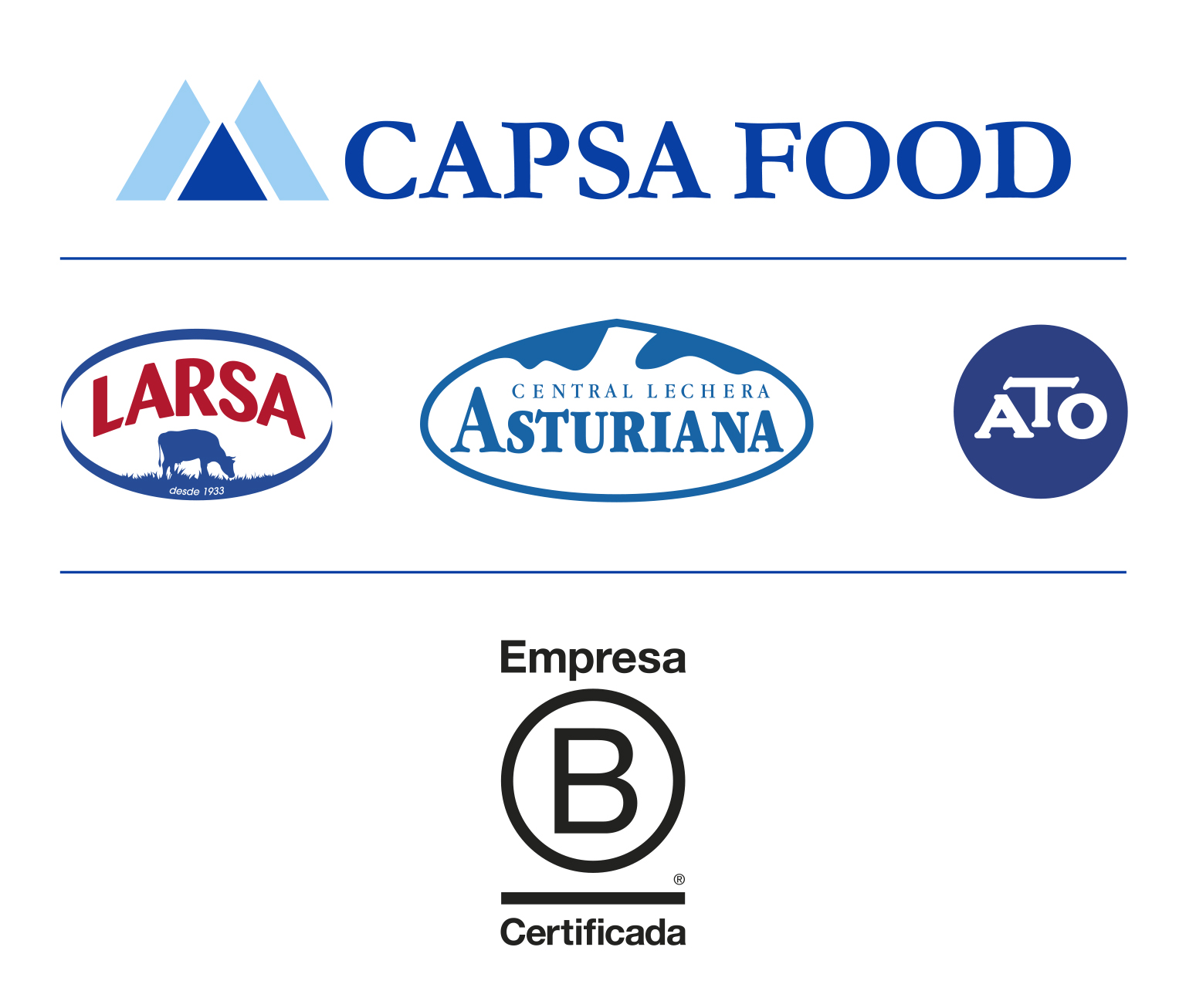

CORPORACIÓN ALIMENTARIA PEÑASANTA S.A ( CAPSA FOOD)

Asturias, Spain
June 2020
Food products
Manufacturing
Mexico,
Spain
CAPSA FOOD (Central Lechera Asturiana, Larsa, ATO, 39ytu, Vega de Oro, Asana and Innova Food Ingredients) is the leading company in the Spanish dairy market that has 6 production centers distributed throughout the Spanish geography giving direct employment to more than 1,300 people with an international presence in more than 40 countries. In 2020 they became part of the B Corp movement and was recognized in 2017 as the company with the best reputation in Spain according to the REPTRAK study by the Reputation Institute. In addition, CAPSA FOOD is the first Spanish food company with the 500+ European Seal of Excellence granted by the European Foundation for Quality Management (EFQM) and the Management Excellence Club (CEG), which implies that it is a well-run company and a “role model” at the national level. In its commitment to comprehensive sustainability, CAPSA FOOD works with the purpose of; "Give the livestock partner a future, offering natural products and solutions that improve people's health and quality of life in a SUSTAINABLE ENVIRONMENT", supporting the primary sector and the rural world, promoting health through nutrition and habits of healthy life, protecting the natural environment and being the exemplary employer that is since its foundation.
Overall B Impact Score
Governance 14.9
Governance evaluates a company's overall mission, engagement around its social/environmental impact, ethics, and transparency. This section also evaluates the ability of a company to protect their mission and formally consider stakeholders in decision making through their corporate structure (e.g. benefit corporation) or corporate governing documents.
What is this? A company with an Impact Business Model is intentionally designed to create a specific positive outcome for one of its stakeholders - such as workers, community, environment, or customers.
Workers 26.3
Workers evaluates a company’s contributions to its employees’ financial security, health & safety, wellness, career development, and engagement & satisfaction. In addition, this section recognizes business models designed to benefit workers, such as companies that are at least 40% owned by non-executive employees and those that have workforce development programs to support individuals with barriers to employment.
Community 28.0
Community evaluates a company’s engagement with and impact on the communities in which it operates, hires from, and sources from. Topics include diversity, equity & inclusion, economic impact, civic engagement, charitable giving, and supply chain management. In addition, this section recognizes business models that are designed to address specific community-oriented problems, such as poverty alleviation through fair trade sourcing or distribution via microenterprises, producer cooperative models, locally focused economic development, and formal charitable giving commitments.
What is this? A company with an Impact Business Model is intentionally designed to create a specific positive outcome for one of its stakeholders - such as workers, community, environment, or customers.
Environment 25.9
Environment evaluates a company’s overall environmental management practices as well as its impact on the air, climate, water, land, and biodiversity. This includes the direct impact of a company’s operations and, when applicable its supply chain and distribution channels. This section also recognizes companies with environmentally innovative production processes and those that sell products or services that have a positive environmental impact. Some examples might include products and services that create renewable energy, reduce consumption or waste, conserve land or wildlife, provide less toxic alternatives to the market, or educate people about environmental problems.
Customers 4.3
Customers evaluates a company’s stewardship of its customers through the quality of its products and services, ethical marketing, data privacy and security, and feedback channels. In addition, this section recognizes products or services that are designed to address a particular social problem for or through its customers, such as health or educational products, arts & media products, serving underserved customers/clients, and services that improve the social impact of other businesses or organizations.